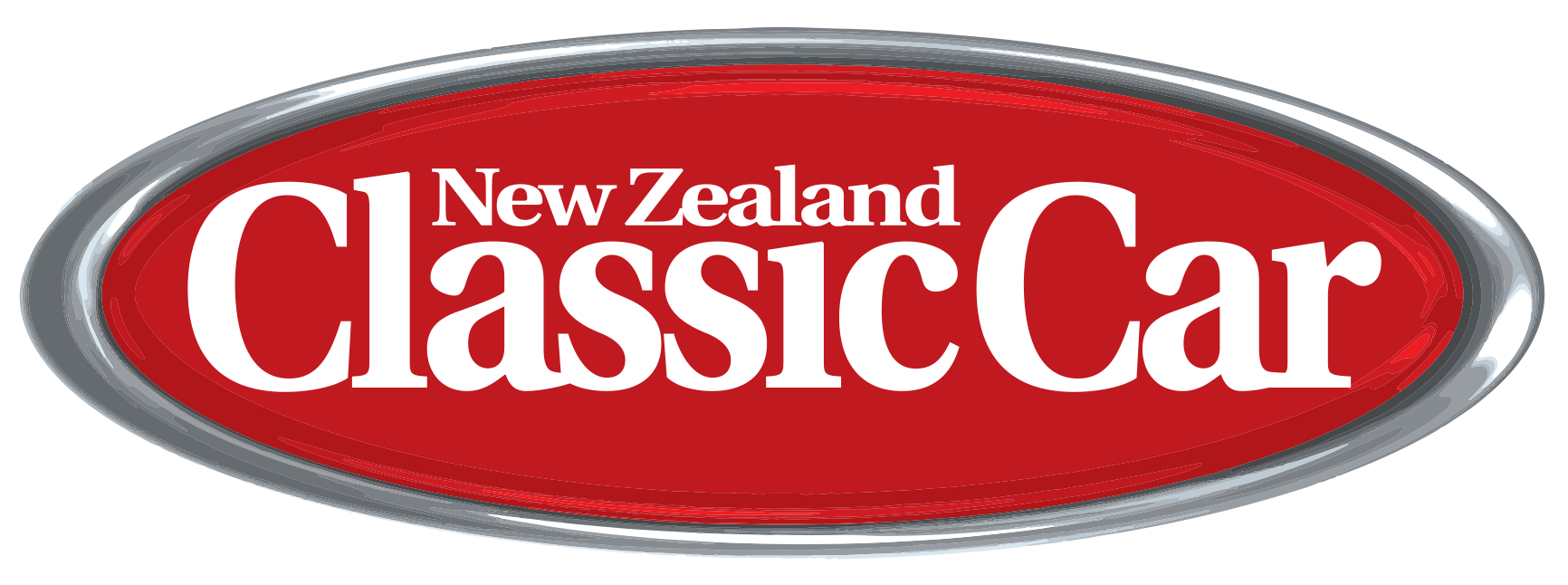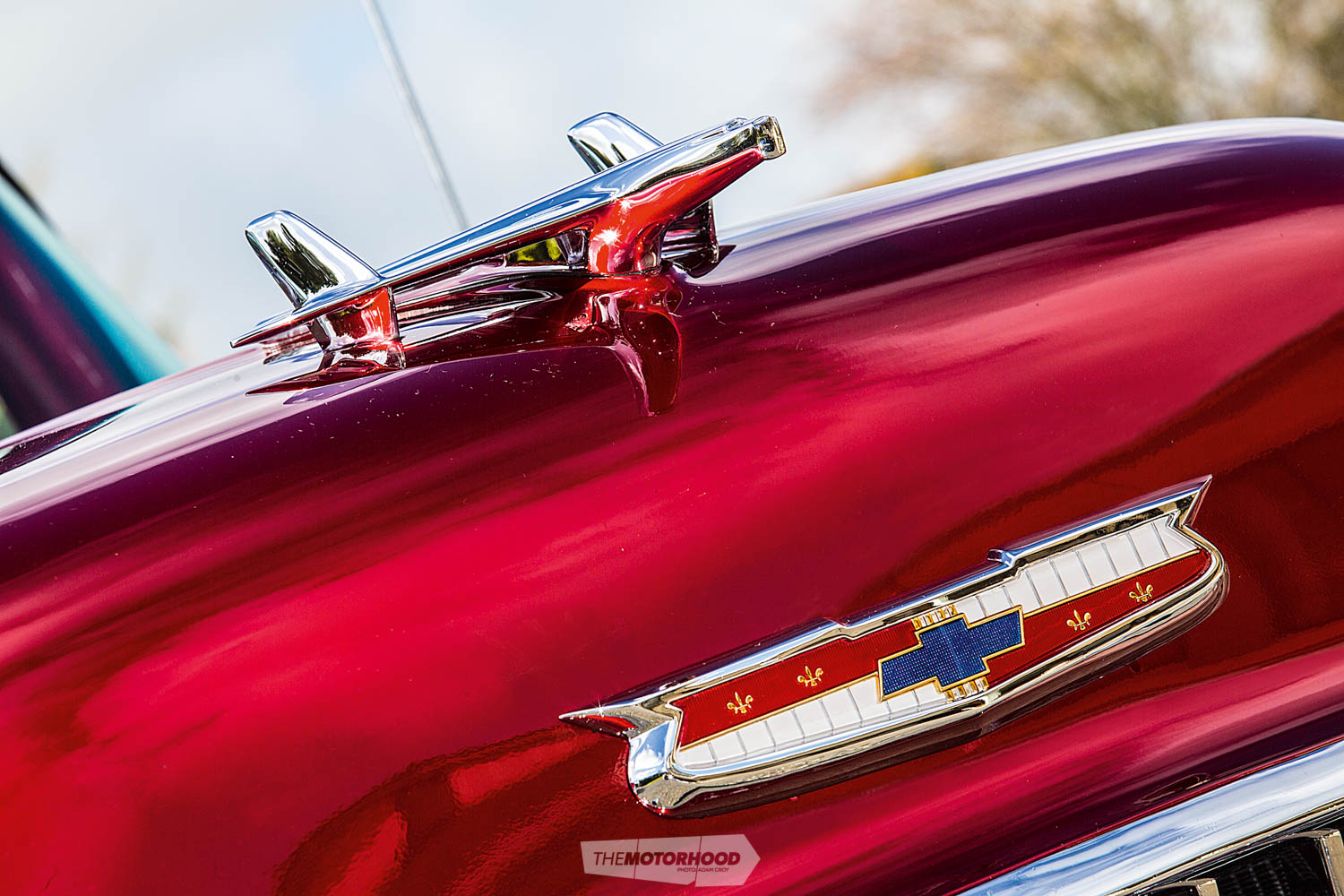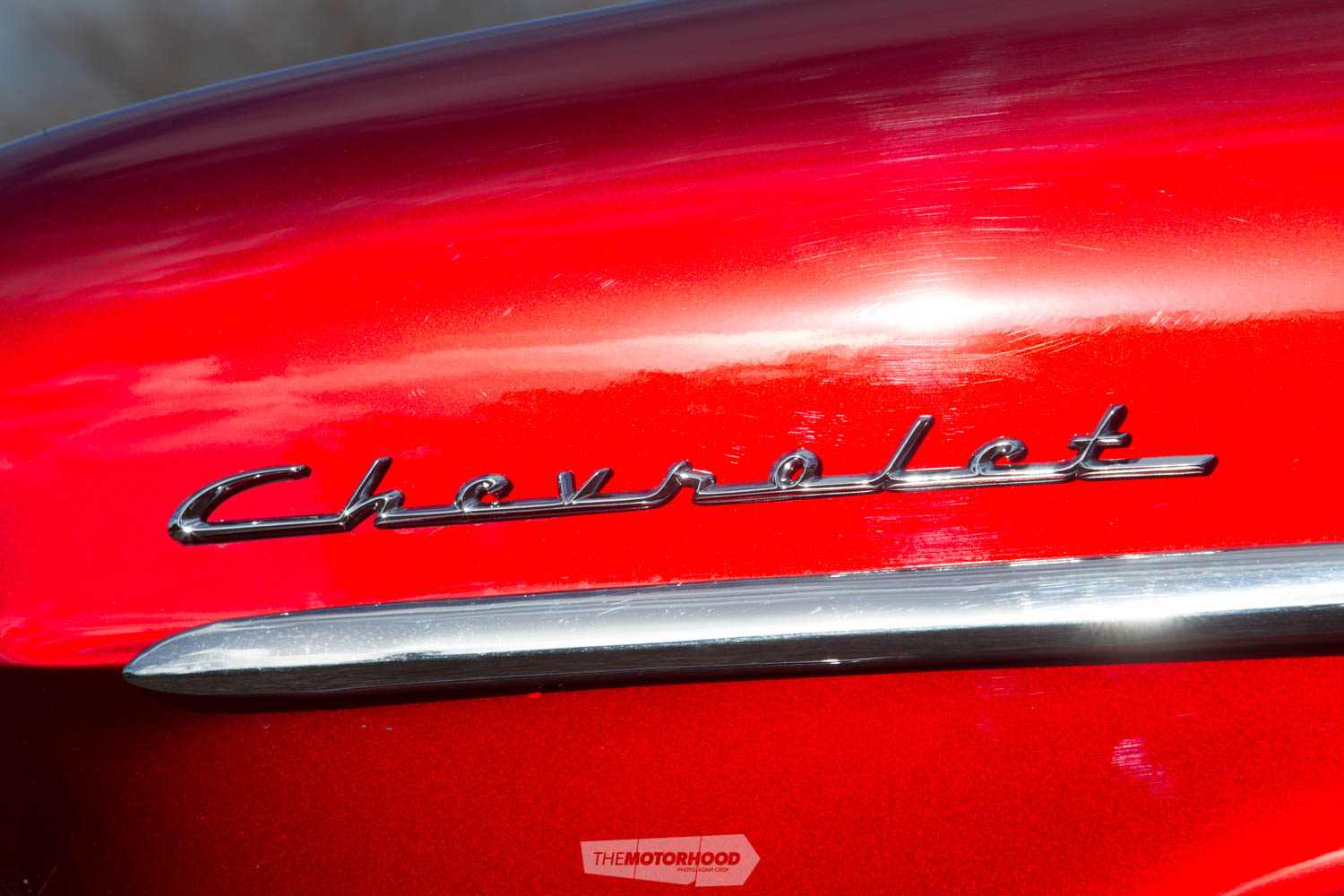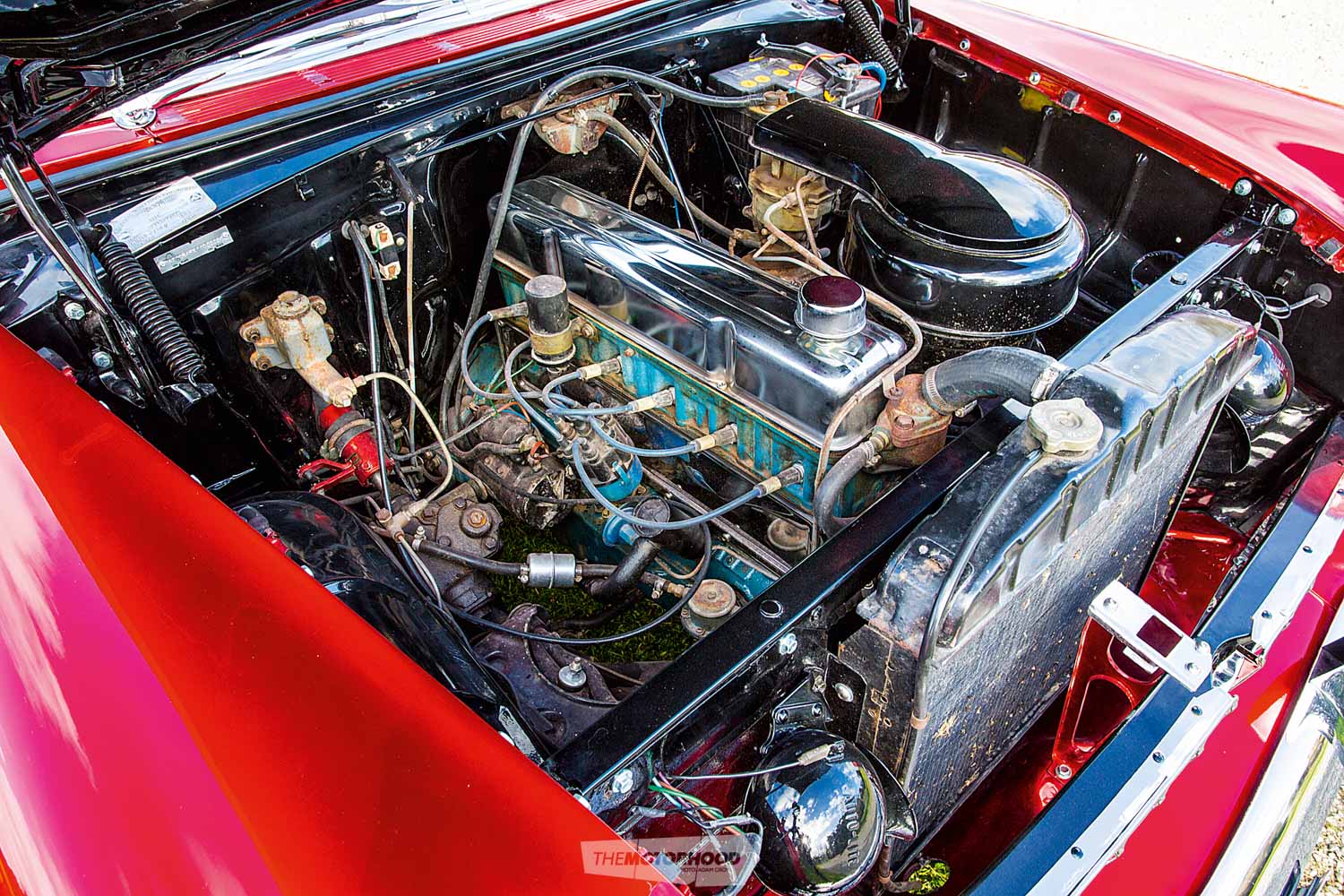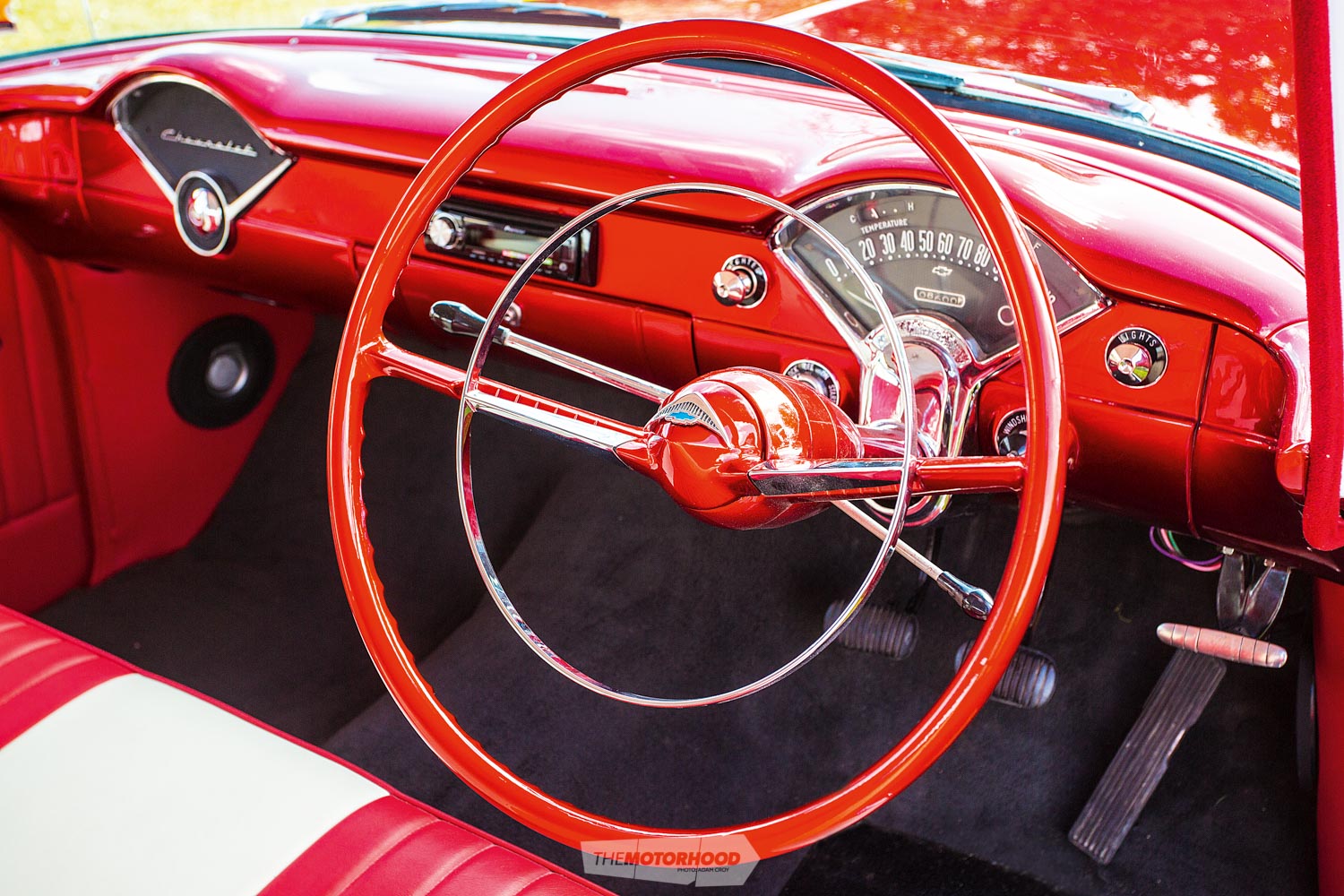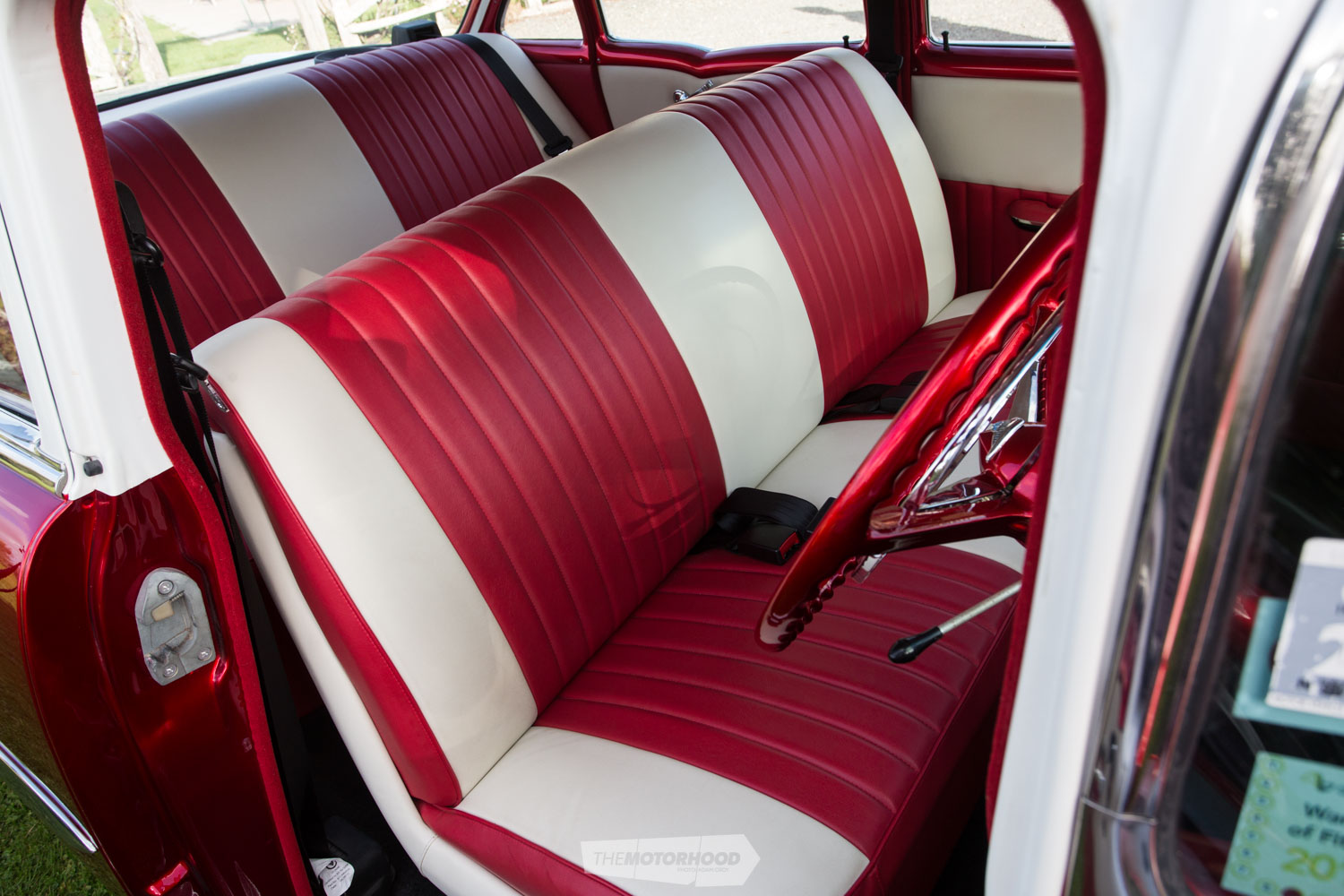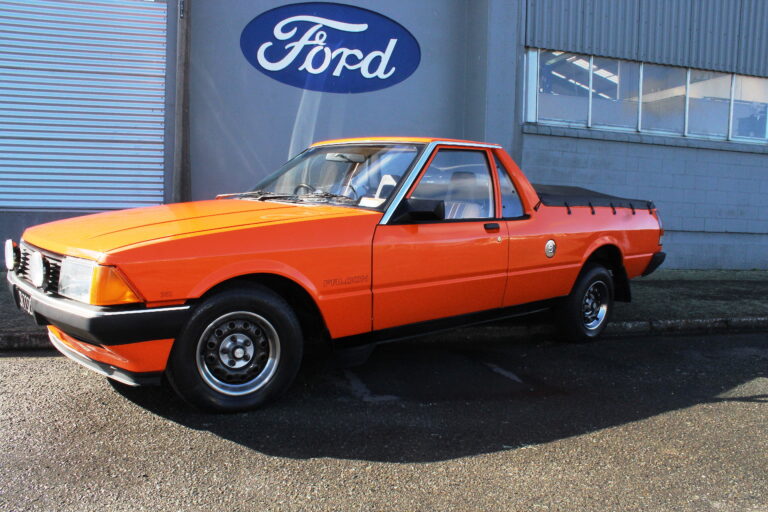There’s nothing like a bit of pressure to get a build moving, and with a family wedding looming, it was a push to get this ’55 Chev cruiser ready for its duties
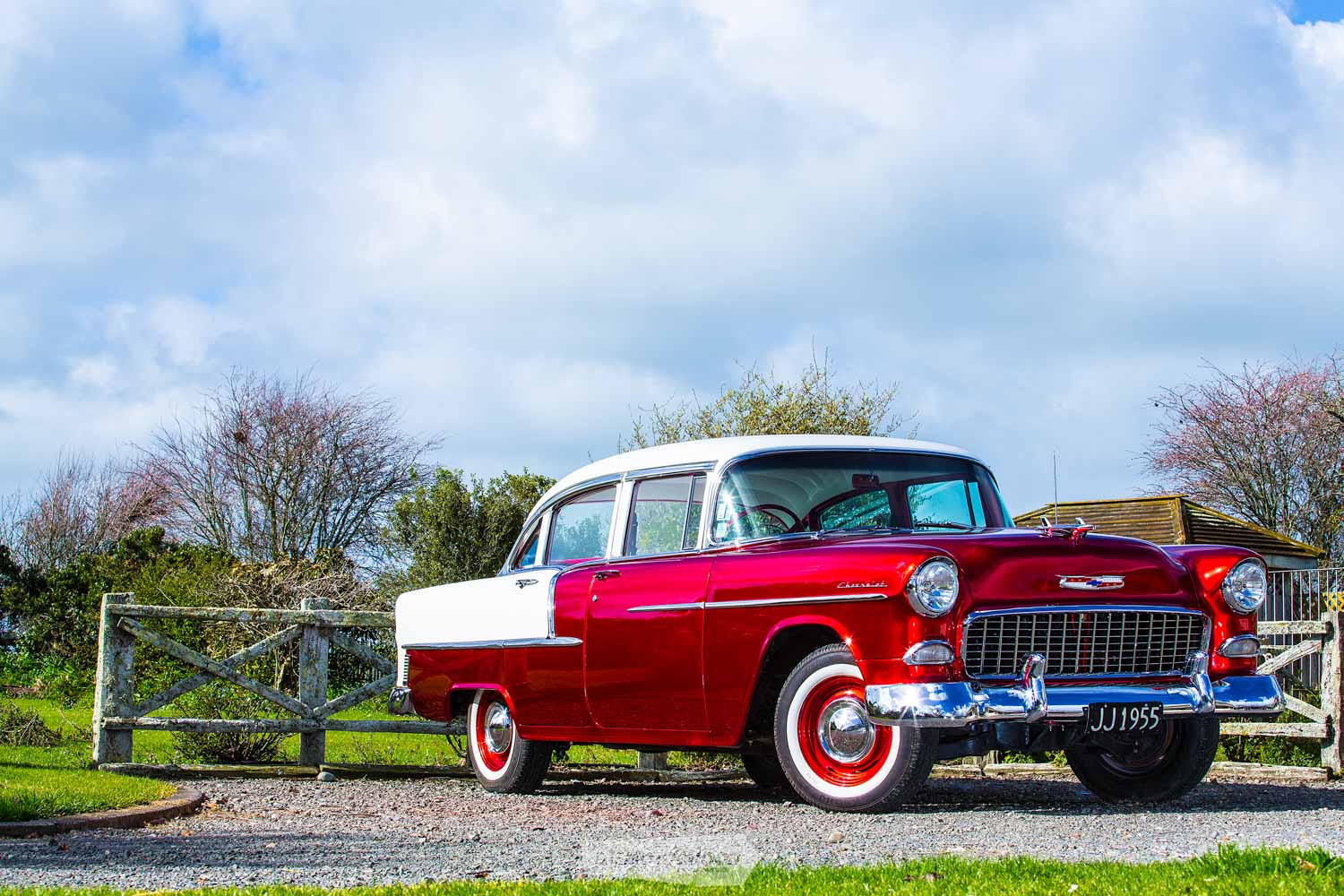
In 1955, giant US car manufacturer Chevrolet shed its conservative image and replaced it with what it called ‘Motoramic’ styling, offering a complete new range of body styles thanks to Chevy studio head Clare MacKichan and body engineer Charles A Stebbins.
The overall brief for these new models originated with GM’s now legendary styling chief, Harley Earl, his aim being to create an eye-catching package with the 1955 Chevrolet. Ironically, Earl wasn’t too keen on the initial designs — they simply weren’t as radical as he had envisioned — but did think they looked rather clean and uncluttered for a car of the period.
Remember, this was also a time when buzzwords such as ‘longer’, ‘lower’, and ‘wider’ were swirling around GM like a contagious flu virus and, even though the new 1955 Chevrolet gave the impression of being quite boxy, it was in fact also sleeker, lower, and shorter than previous models. Indeed, the ’55 car actually looked longer and wider due to the way the rear guards were styled, and the simple fact that the bonnet sat almost level with the front guards, and they, in turn, housed hooded-style headlights styled to emulate jet-engine intakes.
From the functional tail lights to the Cadillac-inspired rectangular egg-crate grille, eagle hood ornament, and the stylish wraparound windshield, the 1955 Chevrolet was unquestionably a Harley Earl design.
Making History
Seldom does a new car arrive at just the right moment, but one such standout was the 1955 Chevrolet. When it hit showroom floors across the US, boasting its fresh, jet-age styling and sizzling new Turbo-Fire V8 option, it was regarded as the most changed car in Chevrolet’s illustrious history — not to mention being hailed as the most exciting car to ever wear the famous bowtie badge since World War II.
Chevrolet’s old durable-but-dull image was gone. The longer, lower, and often two-toned 1955 Chevy exuded American optimism and was referred to as the ‘The Hot One’ thanks to its V8 performance and record-breaking sales pace. Rarely had a mass-produced vehicle been so completely transformed in one year.
The subsequent problem for Chevrolet at the time, and a question frequently asked, was what would Chevy do for an encore? The answer was easy — the 1956 and 1957 Chevrolet. Over the years these popular cars have become motoring icons for an entire generation, becoming some of the most desirable and collectable post-war cars of all.

Seldom does a new car arrive at just the right moment, but one such standout was the 1955 Chevrolet
Bowtie Passion
Chris Russell has always had a passion for ’50s American cars, especially those wearing the bowtie badge. Fuelled by that passion, several years ago he began searching around the North Island for a suitable project — his focus on cars in all conditions, from wrecks to parts and complete cars in need of restoration. However, it wasn’t until he was standing watching a local rugby game one Saturday in 2010 that his search bore fruit. He got talking to a fellow spectator on the sidelines, and, during the course of the conversation, Chris happened to mention he was looking for an old American car, preferably a Chevrolet, to restore. As it turned, out the person he was talking to owned a New Zealand–new ’55 Chevrolet sedan that had been sitting in his shed for the last nine or so years — just 10 kilometres away from where Chris lived. He wasted no time, and, by Sunday afternoon, he’d struck a deal with the owner and purchased the car.
The ’55 Chevrolet was just what Chris had been searching for, with the added advantage that it was a right-hand drive, a feature that Chris had been adamant he wanted from the get-go.
Despite the fact the Chevy had sat for so long, after Chris had lavished some much-needed TLC on it, the stock six-cylinder engine ran well enough for the car to be used on a regular basis for a few years in its original state.
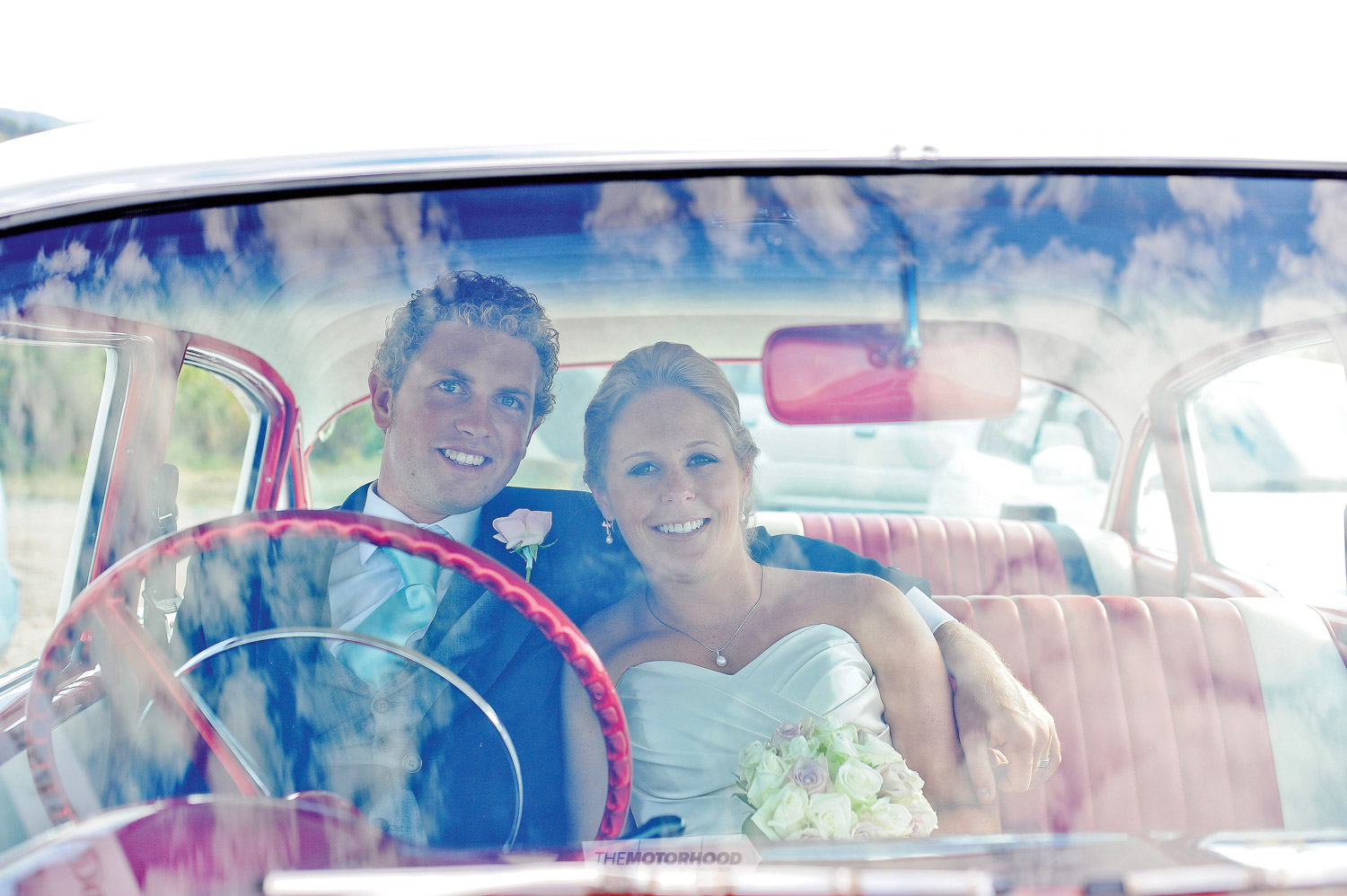
The Wedding March
As far as Chris was concerned, the ’55 Chevrolet was ideal for his purposes — that was, until his son announced his wedding plans for March 2013, adding a request to use the Chevrolet as a wedding car.
At that point Chris made the decision to have the car totally repainted and commissioned Hamish White from Smash Palace Panel and Paint to undertake the work. Unfortunately, Hamish soon uncovered rust forming in many areas underneath the car’s paint — seemingly the end result of a previous restoration attempt many years earlier. Alas, it once wasn’t an uncommon practice to apply filler directly onto bare metal, and that was how the Chevrolet had been ‘restored’.
After an initial assessment and meeting, Chris and Hamish agreed that the Chevy required a bare-metal restoration inside and out to bring it up to the standard Chris wanted. Just to make things more difficult, the pressure was now on to meet the three-month deadline to have the car ready in time for the wedding.
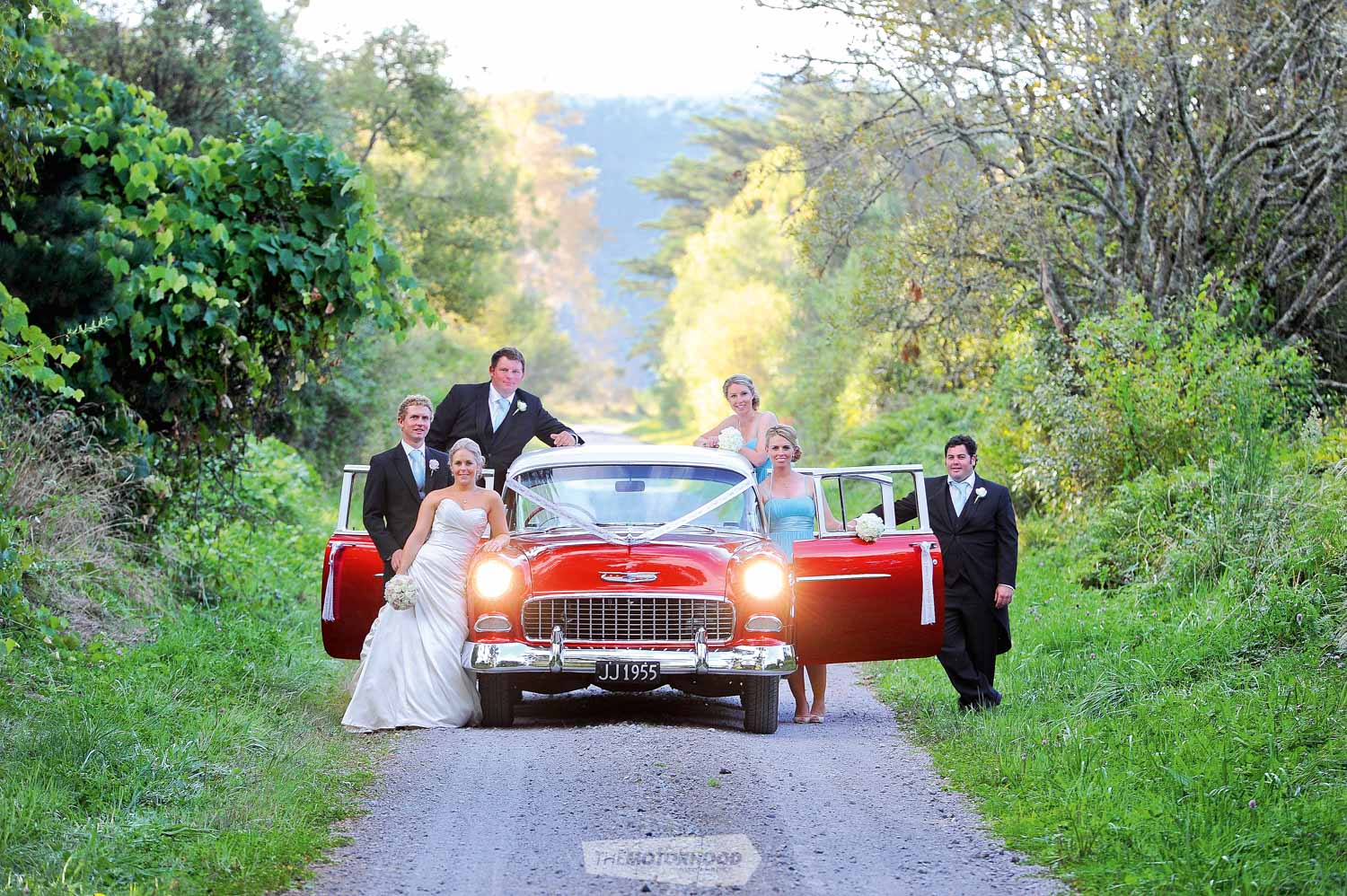
‘Get me to the church on time’. Daniel and Lucy Russell celebrate their wedding in fine style
Moving Out the Mice
The first task was to strip the car down to a bare shell. On removing the headlining, it was discovered that mice had been living (and dying) under the car’s roof. This meant the roof had to be completely removed to address the rust issues the mice had caused in the cant rails over many years of relieving themselves.
Once the team at Smash Palace had completed the metalwork on the rest of the car — cutting out all the rust, replacing it with good metal, and repairing a lot of old damage and dodgy previous repairs — they re-blasted the body back to beautifully clean bare metal.
From there, the car went straight into the paint booth and was heated up to cook out any remaining moisture. The body was then metal cleaned and epoxy primed to seal off the steel and prevent any further rust forming, as had happened following the previous restoration. Next, the panels were prepared and straightened so they were perfectly ripple-free before the white pearl paint was applied to the roof and rear of the car. The stunning multi-layered Apple Red Candy was then applied to the rest of the car, including the dash and interior window trims. Chris was keen to stay with the traditional colour scheme, albeit with a modern twist.
The original front and rear suspension was kept totally original, and the stock six-cylinder Blue Flame engine and three-speed manual gearbox were both refitted back into the car. According to Chris, the engine — which ticks over like a Swiss clock — had been restored by the previous owner and only travelled around 1000km before being parked up.
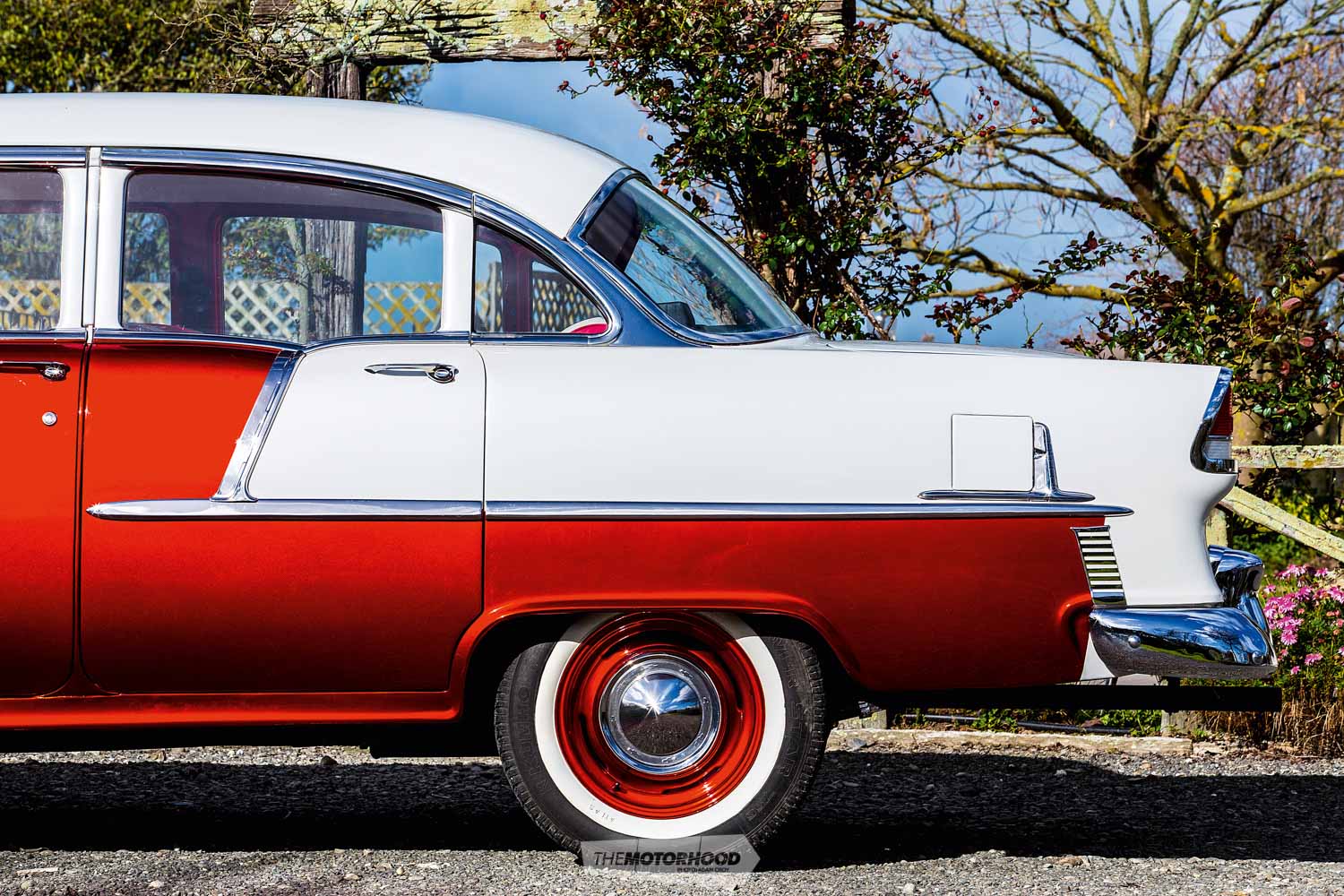
The Finishing Touches
With the date of his son’s big day looming, the pressure was mounting and the assembly process kicked into top gear. Fortunately, while Hamish and his team were performing their meticulous work on the car’s bodywork, Chris from Classic & Custom Motor Trimmers was working his magic on a complete interior retrim to complement the custom exterior.
The seats were completely stripped down to the bare frames and any broken springs were replaced before new foam padding and new red-and-white vinyl covers were fitted. New door cards were also covered in vinyl to match the seats. New charcoal-coloured moulded carpets were also fitted, along with a new headlining, wind lace around all doors, and new weather strips.
All the new parts, including polished stainless trims and garnishes, badges, screws, and rubbers, were supplied by Chuck’s Restoration Supplies.
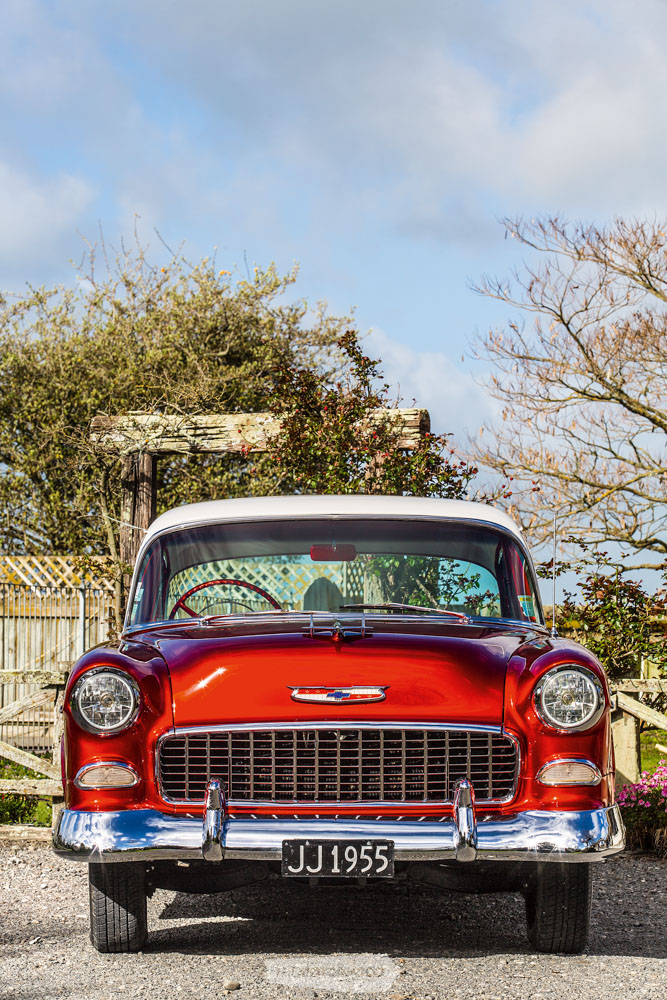
Luckily, after the pressure of the wedding deadline, things have become a little more relaxed, and Chris has been able to enjoy the old Chevy
The result of this successful collaboration was this major restoration task — which had commenced at the end of November 2012 — was finalized a mere three-and-a-half months later, the night before the wedding! As Chris remarked, “It was cutting things a bit fine!”
What makes this Chevrolet so beautiful are the special finishing touches and extras that complement the car’s overall look — Chris having imbued it with his own personality, making it look even more stunning than it would have done when it rolled off the production line back in 1955.
Luckily, after the pressure of the wedding deadline, things have become a little more relaxed, and Chris has been able to enjoy the old Chevy, taking it on a few short trips, and, when time allows, he is looking forward to a week-long jaunt — perhaps taking the old girl on a trip around the South Island.
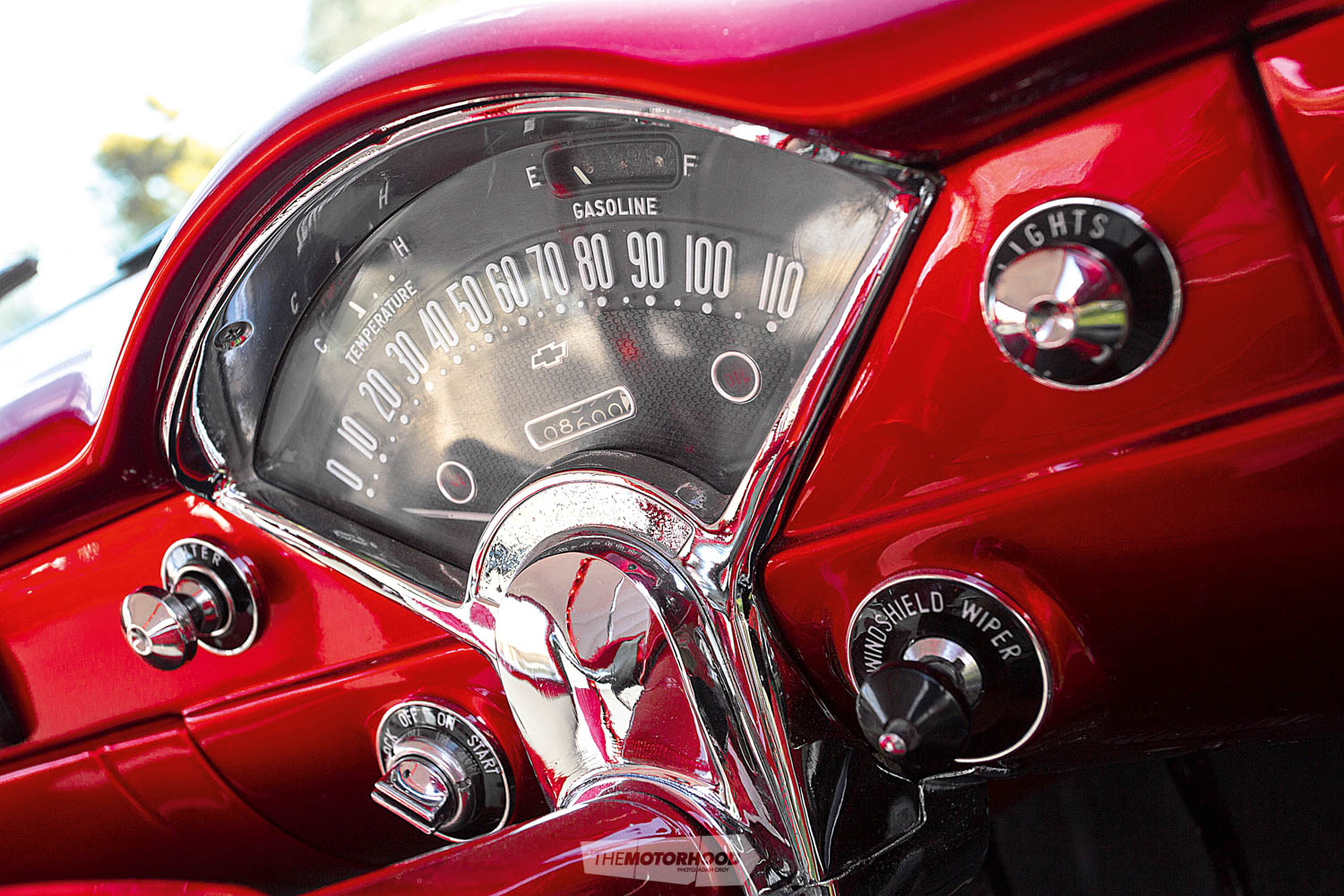
1955 Chevrolet Sedan
Engine: Chevrolet in-line six-cylinder
Capacity: 3859cc (235.5ci)
Bore/Stroke: 9.04×9.98mm
Valves: Overhead
Comp. ratio: 7.5:1
Max power: 92kW at 3800rpm
Torque: 281Nm at 2000rpm
Fuel system: Rochester single-barrel carburettor
Transmission: Three-speed manual
Suspension F/R: Coil springs; semi-elliptic leaf springs
Steering: Recirculating-ball
Brakes F/R: Drum
Dimensions
Overall length: 4968mm
Width: 1880mm
Wheelbase: 2921mm
Track F/R: 1473mm; 1493mm
Kerb weight: 1530kg
Performance
Top Speed: 145kph
0–100kph: 14.2 seconds
Standing quarter-mile: 19.6 seconds
